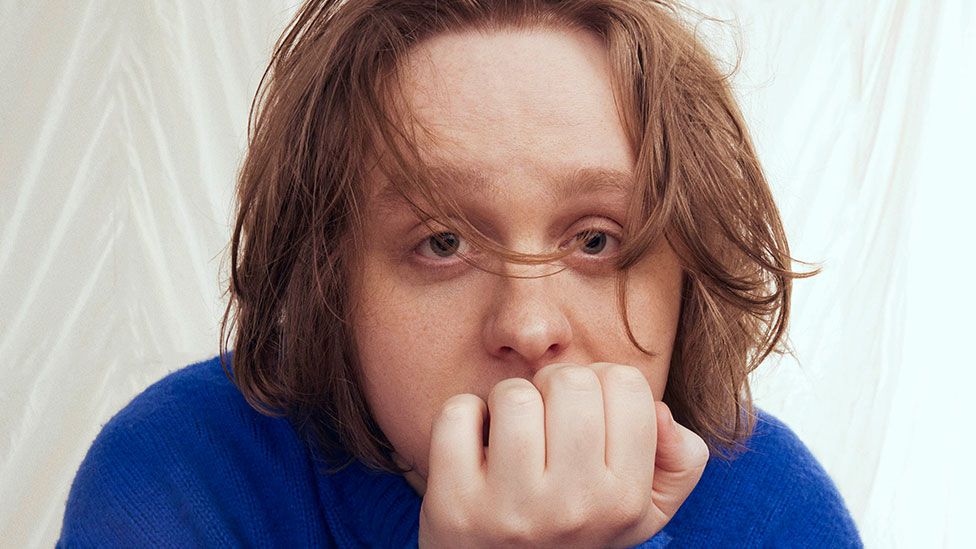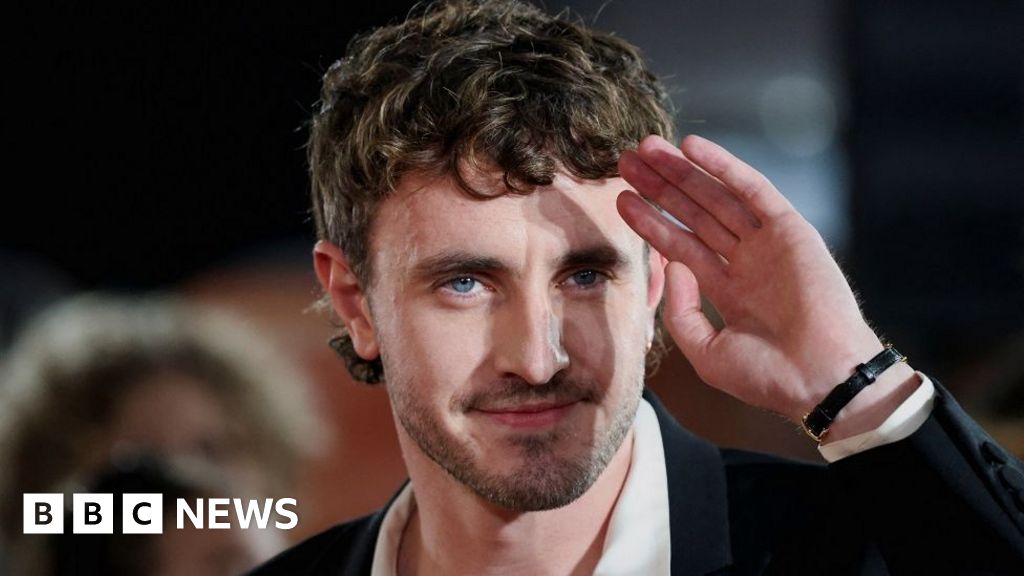ARTICLE AD BOX
 Image source, AlexandraGavillet
Image source, AlexandraGavillet
By Nichola Rutherford
BBC Scotland News
When Lewis Capaldi went back to his hometown for the Covid lockdown, he was expecting to start work on his second album.
His first album, Divinely Uninspired to a Hellish Extent, sold more than any other in the UK in 2019 and it would go on to be the biggest seller in 2020 as well.
It meant expectations were high for album number two. He was feeling the pressure, and it would take its toll physically and mentally.
"Making the first album was as close to dreams coming true as you could possibly get," the Scottish singer-songwriter tells the makers of a new Netflix documentary about his life.
"But as soon as the first album does well, it's like can he do it again though?"
Image source, Jim Dyson
Image caption,Capaldi celebrated with a bottle of Buckfast when he won a Brit Award in 2020
Lewis Capaldi: How I Feel Now charts the rise of the star from his childhood in Whitburn, East Lothian, to chart success, a sold-out arena tour and celebrity status.
The self-proclaimed "Scottish Beyoncé" and "America's sweetheart" has also won a huge following on social media, thanks to his unfiltered humour and a willingness to poke fun at himself.
"A global pandemic is only in the top three weird things to have happened to me in the last three years," he tells programme makers.
But the documentary also looks at the effect that rapid success has had on his mental health, leaving him dealing with panic attacks, a shoulder twitch and a diagnosis of Tourette Syndrome.
And it tackles his "imposter syndrome", which even a kind email from Elton John telling him he writes "beautiful songs that resonate with millions" cannot correct.
After reading the email aloud, Capaldi says: "It's nice but I obviously still feel like an imposter. I don't think it's every going to go away."
Image source, Lewis Capaldi
Image caption,Elton John has called Capaldi the next British superstar
During the documentary his shoulder twitch appears to worsen as he continues writing - apparently fruitlessly - for his second album.
Lacking confidence in his own abilities, he works with other songwriters first over Zoom from his parents' garden shed, then travelling to London and Los Angeles.
But he sets himself a high bar, judging everything against Someone You Love - his breakout single which scored a number one on both sides of the Atlantic.
"I'm not confident in my abilities as a songwriter and I think that's got worse the more successful I've got," he says.
His anxiety manifests in a shoulder twitch.
"The twitch that I have gets worse when I sit down to play the piano. Physically painful," he tells the documentary makers.
"And I get really short of breath and it's like my back kills me when I go to do it. Which is quite ... frightful."
Image source, Netflix
Image caption,Capaldi agonised over song-writing for the new album
Capaldi also speaks candidly about the panic attacks he suffers from, which make him feel like he's "going insane".
"I'm completely disconnected from reality," he says. "I can't breathe, I can't feel breath going in. I get dizzy, I feel like something's happening in my head and I'm sweating.
"My whole body starts to do what my shoulder does and I'm convulsing. Either I feel like I'm going to be stuck like that forever or I'm going to die."
He can spend up to seven hours on the phone to his mum, Carol, as she tries to calm him down.
To Capaldi, those physical symptoms are a perfectly reasonable reaction to having his "world turned upside down".
"For me it's a like a completely normal reaction to this. If you are put in this situation, you are going to have something like this, especially if you are already an anxious person, which I guess I was.
"I didn't ever have the pressure that came to make me full blown but we are there now so we just need to deal with it."
Image source, Getty Images
Image caption,Lewis Capaldi's debut, Divinely Uninspired To A Hellish Extent, was the UK's biggest-selling album of 2019 and 2020
A therapist has told him some of his issues relate to the death of two close relatives as a child, including the aunt whose suicide inspired Before You Go.
It feeds it his anxieties about his own heath and mortality.
Carol says her son - like everyone - is complicated: "He's not just the comedian that we all think he is."
"And that's where the conflict possibly is as well," adds his dad, Mark. "Because the darkness comes over the happy chappy guy and manifests itself in all the tics, the anxiety and all the other things that he's kind of surrounded in."
Despite initially resisting the efforts of his family and friends to get treatment for his debilitating twitch, writing and recording for the second album was eventually put on hold for the sake of his mental health.
That's when he was diagnosed with Tourette Syndrome, a condition that causes people to make involuntary sounds or movements called tics.
It was a diagnosis that made "complete sense" to the singer and reassured the self-confessed hypochondriac that he was not dying.
He's been told that he will see a marked improvement if he can reduce his anxiety - something he is trying to do with medication, exercise and (relatively) healthy eating.
With his second album out this summer, Capaldi fans will be hoping he channelled what he learned from the success of his first.
"At times it was a bit nerve-wracking because I didn't know how to make an album - but it turns out if you just write songs you like and release it..."
Lewis Capaldi: How I'm Feeling Now is on Netflix from Wednesday 5 April. You can find information and support for issues raised in this story at BBC Action Line.

 1 year ago
32
1 year ago
32








 English (US)
English (US)